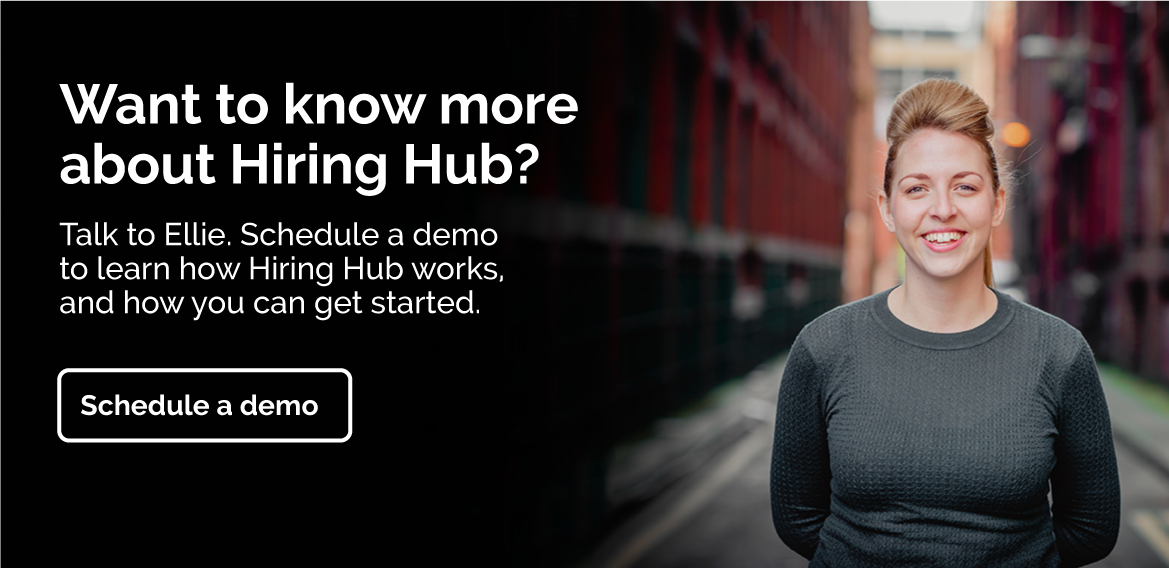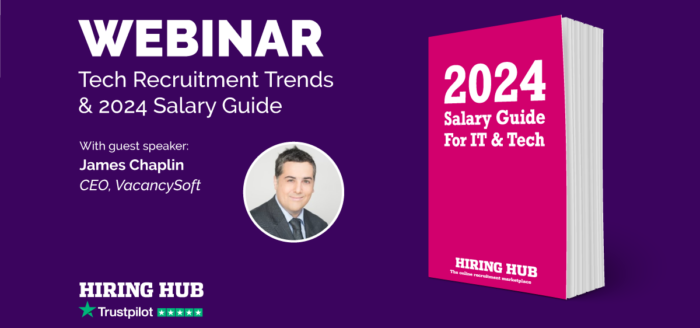
With bold plans to create an additional 1,000 tech jobs within the next two years – on top of the 3,000 people it already employs – The Hut Group is one of Britain’s largest and fastest-growing privately owned technology companies. So just how has it managed to recruit fast enough to keep pace with its stratospheric growth, especially given it’s headquartered in the distinctly non-glamorous, non-techy Cheshire town of Northwich…
To shed some light, we turned to the company’s Head of Talent, Rhea Chatterjee. With over 14 years recruitment experience under her belt – 3 of those at THG – she has played a crucial role in identifying and acquiring the talent the firm needs to keep it growing at its current rate.
Last year you announced plans to create 1,000 tech jobs in the North within three years. How do you approach sourcing candidates to grow your tech team?
First and foremost, THG is a tech business, so we’ve always been very aggressive in hiring tech talent by seeking graduates from very strong tech backgrounds. Of course, we always look to home grow our own talent, and we do this very successfully by having strong leaders within the business, including Senior Engineering Directors from both Amazon and Google, who can effectively coach and nurture our grad talent; they give them interesting projects and the autonomy they need to be able to drive projects more independently, which is something I think a lot of graduates get promised but in reality, they’re still seen as graduates – this is never the case at THG.
We’re always looking for new and innovative ways to attract tech talent. The North West is a great tech hub, but it’s a very small market so you tend to see the same people move around the same types of companies, whether it be AutoTrader, RentalCars, Moneysupermarket or THG, which is why we’re always looking to home-grow our own talent.
We’re in the very early stages of developing a technology institute where we actually grow and develop talent and encourage more women into tech. We created the institute for two reasons: 1) obviously, for our own recruitment needs; but 2) to grow tech talent in the Northwest region.
The Hut Group has made several acquisitions recently, how has its recruitment process evolved to deal with multiple assets/brands?
All of our brands are growing at a rapid rate and the way that we build and cope with that pace is to create our own internal resourcing function. When I first joined in 2015 there were two of us doing recruitment. Now we have a central talent team of ten, with various support teams underneath them.
However, it’s not always about new recruitment and filling new roles. Focusing internally has also helped us deal with such rapid growth, so by developing and promoting individuals we have been able to retain staff for longer. We’ve also, obviously, had to take into account that the businesses that we acquire have their own existing talent as well. So, we always focus on how we can integrate them into the THG model and manage that change to keep the talent within those existing organisations as well.
When searching for candidates, what tends to be the most successful channel for THG?
Jobs boards tend to be a little hit and miss, but we do use them through our application tracking system. To be honest, as our brand name has grown, we’ve seen a steady increase in good quality, speculative applications direct from candidates.
I would also say referrals are a great source of candidates because staff will only refer people that they know fit our culture. THG is a very fast-moving business, so team members need to have a fairly resilient character and have that ambition and drive to keep ploughing forward and keep disrupting the market. It takes a certain type of person to have that drive, so staff that refer candidates to us will know whether that candidates makes the cut and would fit in, culture wise.
Finally, LinkedIn is used by our in-house team to target individuals and to really understand their background, skills and experience.
The four main sectors you focus on at THG are beauty, wellness, luxury and lifestyle. Does your recruitment process differ for each or any of these sectors?
Not the physical process, no. We are very streamlined in that respect and our quick turnaround when hiring is something that we feel is a USP of ours.
We’re very lucky from a recruitment perspective: the whole company is really bought into recruitment so finding members of staff that are genuinely invested in interviewing and giving the time needed to meet candidates has never been a problem – this is usually quite rare!
Our processes are by and large the same. It’s more of a people process when recruiting for each sector. We tend to try and match each candidate with what their passion or interest is, because when they truly care it tends to come out in their work. We have hired a number of customers too, because they tend to understand the sector and the brand.
So yes, who we target will be different, whether it’s lifestyle consumer brands or our health brands, but by and large the recruitment process itself is the same.
So can tell us what that process looks like, and why have you structured it the way you have…
There isn’t a 100% fixed process as such. Every potential candidate will be given a phone interview so we can better understand an individual’s motivations. Although we have specific job postings, because we are growing at such a rapid rate, we are able to use these conversations to align people to where we think they’ll be a good fit and to understand what the individual’s looking for.
Quite often we have opportunities across the company that they don’t know about but, had they, they would have otherwise applied. So, we’re in a very fortunate position that it’s not “you’ve applied for this job, you either fit in or you don’t.” We can be a bit more flexible than that.
The next stage is to then meet the candidate. We always meet the candidate, regardless of where in the world they’re based.
If it is an international recruit, we would invest in a more intensive up-front process, using the likes of Skype for interviews, before we decided to fly them over. If the candidate is based in the UK, we would invite them up to our headquarters after the initial telephone interview.
We then invite a mix of senior managers, usually the divisional executive or the MD depending on the seniority of the role, to meet the candidate. This is then followed by a tour of our office where we allow the candidate to meet the rest of the team; again, to see if they like the environment and fit in with the culture.
What, specifically, are you looking for in candidates?
That differs according the level of the role. If we’re talking about the graduate population, we seek academics from top universities. We want them to demonstrate when they’ve gone above and beyond, so we’re confident they’re not just going to do the 9-5 and switch off after this time.
However, core qualities every candidate must have are resilience, drive and ambition. Beyond that, I feel it’s important to understand how they approach and deal with challenges, how they structure and manage their time, and finally how they have dealt with an issue when things didn’t go to plan.
Do you have a set of ‘go to’ interview questions you rely on?
Yes, we do have a set of core questions but, typically for us, it’s about finding out about the candidate and letting them find out about our interviewers as people as well. We don’t want to be too prescribed in terms of what we ask. It should flow, like any conversation.
However, that being said, we do have more technical interview questions for our more technical roles like finance, tech, and any of our trading roles.
Do you ask any specific questions to determine a candidate’s suitability?
Not specific as such. A key thing for me to understand is what an individual is looking for from an employer so I get a feel for if that individual would thrive within the business.
You see, I come from a very corporate financial services background and THG is a tech business – the exact opposite! It’s super relaxed without the red tape or hierarchy you tend to see in finance. THG gives employees the chance to make a change and be decision makers rather than follow a process that’s been around for years.
However, I’ve met a lot of candidates that wouldn’t appreciate this way of working. They flourish from processes, structure and governance. THG’s culture isn’t right for everybody but it’s important to understand that. So, one of my core questions is to try and understand what motivates an individual and what kind of environment they would thrive in.
We have all heard of the more unusual interview questions… if you were an animal, what would you be? … to test how a candidate responds when put on the spot. Does THG use any curve ball questions?
Ha ha, I hope not! I’m not a fan of questions like “if you were a biscuit, what biscuit would you be.” I suppose it shows whether an individual can think on their feet and how they deal with something a bit abstract on the spot. But other than that, I struggle to see the relevance of what you get a from a question like that.
For me it’s very much about having a conversation and building a rapport with a candidate, rather than asking a random question. So what, we’re only going to hire people that are lions..? Ha ha.
We’re told during our interview training that whenever you ask a question, think about what it is that you want to understand and how that’s applicable to help you make a decision on a candidate.
When searching for candidates, what tends to be the most successful channel for THG?
Jobs boards tend to be a little hit and miss, but we do use them through our application tracking system. To be honest, as our brand name has grown, we’ve seen a steady increase in good quality, speculative applications direct from candidates.
I would also say referrals are a great source of candidates because staff will only refer people that they know fit our culture. THG is a very fast-moving business, so team members need to have a fairly resilient character and have that ambition and drive to keep ploughing forward and keep disrupting the market. It takes a certain type of person to have that drive, so staff that refer candidates to us will know whether that candidates makes the cut and would fit in, culture wise.
Finally, LinkedIn is used by our in-house team to target individuals and to really understand their background, skills and experience.
Attitude vs aptitude… Does fitting into the company culture outrank a candidate’s aptitude at THG?
Ooh, that’s a tough one. In my personal opinion, yes, attitude does outrank. THG has its own systems so people are always learning on the job, regardless of experience – they all learn a new way of working here. So, from an aptitude point of view, it’s impossible to walk straight in and have all these skills. It’s attitude: an individual’s openness to learning, their flexibility and drive to do something different that counts.
In such a collegiate environment, we all learn from one another so ‘aptitude’ can be taught. However, if you’ve got the wrong attitude, it can really limit what you can get from working at THG.
Want to discover how the firms like Virgin, Travelex, The Hut Group, Box, and EE determine candidate fit? Get your FREE copy of our ‘Ultimate Guide to Interviews’ here to find out more.



